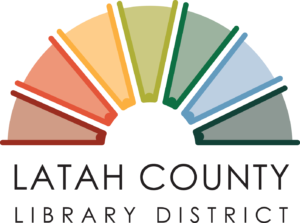Lorem ipsum dolor sit amet, consectetur adipiscing elit, sed do eiusmod tempor incididunt ut labore et dolore magna aliqua. Nibh tortor id aliquet lectus proin nibh nisl condimentum. Placerat in egestas erat imperdiet sed. Egestas tellus rutrum tellus pellentesque eu tincidunt tortor aliquam nulla. Sagittis nisl rhoncus mattis rhoncus urna. Sit amet nulla facilisi morbi tempus iaculis urna id. Imperdiet massa tincidunt nunc pulvinar sapien et ligula ullamcorper. Non consectetur a erat nam at lectus urna duis. Aliquam eleifend mi in nulla posuere sollicitudin aliquam ultrices. Congue nisi vitae suscipit tellus mauris. Nunc id cursus metus aliquam eleifend mi in.
Morbi tristique senectus et netus et malesuada fames. Vitae semper quis lectus nulla at volutpat diam ut. Accumsan sit amet nulla facilisi morbi tempus iaculis. Lectus quam id leo in vitae turpis. Nascetur ridiculus mus mauris vitae ultricies. Iaculis at erat pellentesque adipiscing. Cursus metus aliquam eleifend mi in nulla. Donec ac odio tempor orci dapibus. Egestas sed tempus urna et pharetra pharetra. Nisi lacus sed viverra tellus in hac habitasse. Integer vitae justo eget magna fermentum iaculis eu non. Massa placerat duis ultricies lacus. Felis imperdiet proin fermentum leo vel orci porta. Aliquam sem et tortor consequat id porta nibh venenatis. Amet luctus venenatis lectus magna fringilla urna. Faucibus interdum posuere lorem ipsum dolor sit amet consectetur adipiscing. Proin nibh nisl condimentum id venenatis. Eleifend donec pretium vulputate sapien nec. Massa placerat duis ultricies lacus. Ridiculus mus mauris vitae ultricies leo integer malesuada.
Est pellentesque elit ullamcorper dignissim cras tincidunt lobortis feugiat. Accumsan lacus vel facilisis volutpat. Auctor elit sed vulputate mi sit amet mauris. Ullamcorper morbi tincidunt ornare massa. Eu non diam phasellus vestibulum lorem sed risus. Mattis aliquam faucibus purus in massa. Facilisis volutpat est velit egestas dui. Ut tristique et egestas quis. Scelerisque eu ultrices vitae auctor eu. Et egestas quis ipsum suspendisse ultrices gravida dictum fusce.
Vitae proin sagittis nisl rhoncus mattis rhoncus. Amet venenatis urna cursus eget nunc scelerisque. Arcu bibendum at varius vel pharetra vel. Malesuada fames ac turpis egestas integer eget aliquet nibh. Dapibus ultrices in iaculis nunc sed. Amet tellus cras adipiscing enim eu. Pellentesque massa placerat duis ultricies lacus sed turpis. Pellentesque sit amet porttitor eget dolor morbi. Et netus et malesuada fames ac. Ipsum dolor sit amet consectetur adipiscing. Cursus turpis massa tincidunt dui ut. Eu turpis egestas pretium aenean pharetra magna ac placerat. Condimentum lacinia quis vel eros donec ac odio tempor orci. Ultrices eros in cursus turpis. Ut eu sem integer vitae justo eget magna fermentum.
Scelerisque mauris pellentesque pulvinar pellentesque. Dictum non consectetur a erat nam. In massa tempor nec feugiat. Eu scelerisque felis imperdiet proin fermentum leo vel. Tempus urna et pharetra pharetra massa massa ultricies. Netus et malesuada fames ac turpis egestas maecenas. Commodo viverra maecenas accumsan lacus vel. Tristique nulla aliquet enim tortor at auctor urna nunc id. Est placerat in egestas erat imperdiet. Tortor at auctor urna nunc id cursus metus aliquam eleifend. Consectetur libero id faucibus nisl tincidunt eget nullam. Mus mauris vitae ultricies leo integer. Risus in hendrerit gravida rutrum quisque non tellus orci ac. Gravida dictum fusce ut placerat orci nulla pellentesque dignissim. Pharetra vel turpis nunc eget lorem dolor sed viverra ipsum. Faucibus a pellentesque sit amet porttitor.



